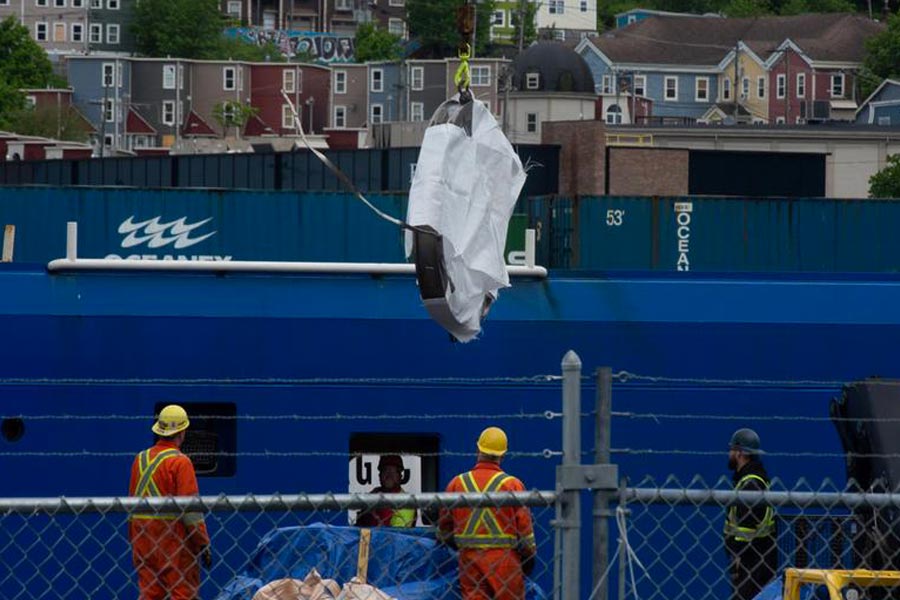OceanGate — operators of, among others, the Titan submersible that imploded after it went missing in the North Atlantic on June 18 — announced Thursday that it had "suspended all exploration and commercial operations."
OceanGate, which is based in Everett, Washington state, provided crewed submersible vessels for tourism, exploration, industry and research.
The disappearance of the Titan submersible vessel and its five passengers near the famous wreck of the Titanic in the North Atlantic unleashed a massive search and rescue effort involving Canadian, US and UK naval coordination.
Four days later, the vessel's remains were discovered 1,600 feet (500 meters) from the bow of the Titanic some 400 miles (644 kilometers) off the coast of Newfoundland. It was soon concluded that all inside had been instantly killed when the submersible catastrophically imploded at a depth of more than 2 miles below the surface.
Experts say the implosion occurred at the same time the launch ship lost radio contact with the submersible — about one hour and forty-five minutes after it was lowered into the sea.
The company's multi-millionaire CEO Stockton Rush was among those killed in the incident.
The wreckage, among which are presumed human remains, has been taken to St. John's, a port town in eastern Canada. US and Canadian authorities have launched investigations into the cause of the catastrophe.
OceanGate CEO proposed innovation over safety
The incident shined a light on worries about the unregulated nature of such expeditions, as well as previous concerns over OceanGate safety policies.
CEO Stockton Rush railed against laws like the 1993 Passenger Vessel Safety Act — which regulates the construction of underwater vessels — saying they "needlessly prioritized passenger safety over commercial innovation."
In 2022, Rush told CBS News, "I think I can do this just as safely by breaking the rules."
Rush had discovered what he perceived as a private market opportunity for underwater exploration around 2007, and founded OceanGate in 2009 with then-business partner Guillermo Söhnlein to exploit it.
The dark story of the doomed Titanic, which sank in the icy waters of the North Atlantic while on its 1912 maiden voyage and lies on the ocean floor at a depth of 4,000 meters (13,000 feet), has captivated imaginations for generations. More than 1,500 of the ship's 2,224 passengers were killed in the incident.
The elusive wreck was finally found in 1985 and made more famous still by people like Hollywood director James Cameron — both with his blockbuster as well as his documentary submarine footage of the ship.
OceanGate Expeditions monetized that fascination, claiming it had made 13 successful trips to the storied wreck by 2023. It charged wealthy tourists $250,000 (€230,000) for a seat in its submersible.
The others on board the Titan when it imploded were billionaire British explorer Hamish Harding, billionaire French submarine expert Paul-Henri Nargeolet, and Pakistani-British multi-millionaire tycoon Shahzada Dawood and his son Suleman.
OceanGate had planned two expeditions to the wreck of the Titanic in June.










